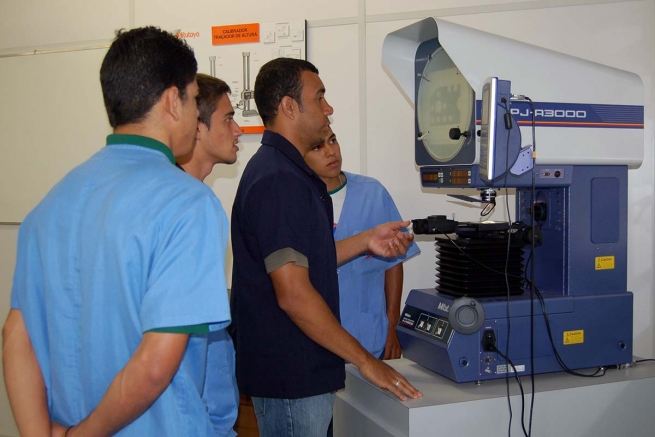"The old Italian model of poverty saw the elderly among the poorest. This is no longer valid. Nowadays absolute poverty is inversely proportional to age, in other words, poverty decreases among older people." This can be seen from the 2016 Italian Caritas Report 2016 on poverty.
In Italy the rate of absolute poverty has reached the highest level of the past decade and it affects mainly young people looking for work and unemployed adults. Of the 4.6 million absolutely poor people, those under 34 account for 46.6% of the total.
At the same time, on the other side of the world, according to the annual report of the Organization for Cooperation and Economic Development (OECD), more than 100 million Latin-American young people - 64% of the total - live in poor or vulnerable families, and about 30 million of them - that is 1 out of 5 - have no possibilities for study or work.
A further consequence of this is that about 50% of companies cannot find skilled labour for their activities. This is a particularly serious problem, especially in Argentina, Peru, Brazil and Mexico. The causes are many, but to combat them all the signs point specifically to education.
One possible solution is presented in Europe where it is proposed to allocate more resources for young people and to take into account the great mobility of the labour force. Entrepreneurs in Latin America advise presidents and heads of state to promote the use of technology in education to prepare young people "of the future."
They also claim that "learning models that use information and communication technologies allow for greater flexibility and an acceleration of the pace of learning", while acknowledging that "much remains to be done to move forward."
As Salesians we have inherited from Don Bosco a practical sense, by which education and evangelization are accomplished through practical answers to the needs of young people. These statistics are an urgent call to re-evaluate, improve, to give new meaning to our work and to strengthen our educational presence among the poor, helping them to find a place in our works which would guarantee their rights and put them in a position to honestly earn a living and achieve their personal fulfilment.
This is the field in which we develop our vocation. Unlike NGOs, we propose to young people something more than a professional qualification. Our educational proposal is a guide for young people to discover their vocation as children of God and builders of society.


